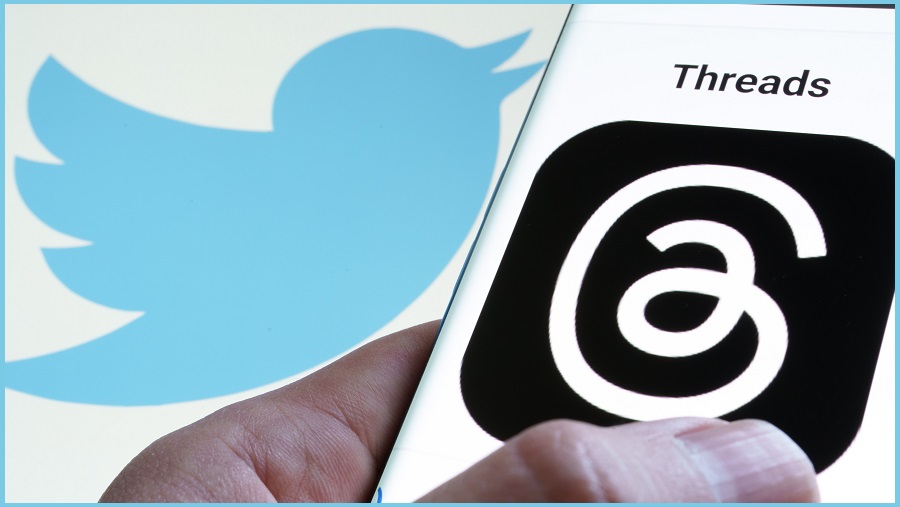According to Twitter, Threads “infringes on our intellectual property and patents”. They claim Threads copies core features of Twitter like profiles, timelines, and posting short messages. Meta argues that while the apps may look similar on the surface, Threads was built from the ground up and has unique capabilities. Frankly, as a user of both Twitter and Facebook, the features do seem pretty comparable to me. But then again, I’m no tech expert or lawyer.
The question now is whether this legal threat will actually turn into a full-blown lawsuit. Twitter has fired shots at competitors in the past, but they don’t always follow through. If Twitter does sue, it could get messy given how much data and info these companies have on all of us. An all-out legal war might not be in anyone's best interest. But I guess only time will tell how this battle shakes out and whether we'll be using Threads or sticking to Twitter. The social media drama never ends!
Twitter Demands Meta Shut Down Threads App
Twitter is demanding that Meta, formerly Facebook, shut down their new Threads messaging app or face legal action. According to sources, Twitter sent a cease and desist letter to Meta claiming Threads copies core features of Twitter and infringes on their intellectual property.
Twitter argues that Threads replicates the microblogging experience of tweeting and sharing posts, photos and links with friends and followers that Twitter pioneered. They say Threads incorporates similar functionality and interface elements as Twitter, including options to like, comment and repost updates.
Meta denies the allegations and says Threads was created to provide a dedicated space for intimate conversations with close friends and family on Facebook. They believe Threads offers a distinctly different user experience than the one-to-many broadcasting nature of tweets.
However, some industry experts agree that Threads does appear strikingly similar to Twitter. The app lets you post short status updates, photos or links that followers can then like, comment on or repost to their own threads. The overall look and feel of Threads also seems to closely resemble Twitter with a vertical scroll of updates and options to search topics, follow hashtags and tag other users.
While Meta is unlikely to shut down Threads given how much they’ve invested in developing and marketing the app, Twitter may have grounds for a persuasive case against them. If Twitter pursues legal action, it could turn into a lengthy court battle over intellectual property between two of the world’s largest social media companies. The outcome may ultimately determine how much one platform can replicate another before crossing the line.
How Threads Copies Twitter's Core Functionality
Have you checked out Meta’s new Threads app? At first glance, it seems pretty similar to Twitter. And Twitter's not happy about it. They've threatened to sue Meta, claiming Threads copies Twitter's core functionality.
Threads allows you to share short posts, photos, and videos with friends and followers. Sound familiar? ###It's basically Twitter with a new name. Some of the similarities that have Twitter up in arms:
Posts are limited to 280 characters, just like Tweets.
You can follow friends, influencers, and brands.
There's a news feed where you see posts from people you follow, in reverse chronological order.
You can search posts by keyword or hashtag. Trending hashtags and topics are also featured.
While the features may be alike, Meta argues the intention and audience are different. Threads is meant for connecting with close friends, not the open sharing of Tweets. Still, the resemblance is uncanny and Twitter doesn't want a clone eating into their market share.
Meta has faced legal issues over copying competitors before, like when Stories first launched on Instagram. They know there's a fine line between expanding into new areas and outright replicating another service. The case will likely come down to specifics around how Threads operates and whether it crosses that line. If you ask us, it seems Meta's threading into dangerous territory. But competition often breeds innovation, so maybe in the end, users will win.
Twitter's Legal Basis for a Lawsuit Against Meta
Twitter is threatening to sue Meta over their new “Threads” feature, claiming it infringes on Twitter’s intellectual property. Twitter’s legal case would likely focus on a few main points:
Twitter was the first major social network to introduce the “tweetstorm” or thread - a series of connected tweets to tell a longer story. They popularized and own the concept of threading posts together to create a cohesive narrative or share an extended idea. Threads has essentially copied this core functionality that Twitter pioneered.
Twitter’s product is uniquely centered around short posts and threaded conversations. Threads replicates this key aspect of Twitter’s service, which could undermine Twitter’s business model and competitive advantage. Courts have found “copycat” products that closely imitate a company’s signature features to be infringing.
Meta has a history of mimicking competitors’ products, like when they added “Stories” and the news feed to Instagram after Snapchat and Twitter’s success. This pattern of behavior could bolster Twitter’s case that Threads is another example of Meta appropriating other companies’ original ideas.
Twitter likely wants to defend their product innovation and set a precedent that major tech companies can’t just freely duplicate each other’s products. A lawsuit, even if not ultimately successful, could be a warning shot to discourage such behavior in the future and a way for Twitter to stand up for themselves in the public sphere.
Of course, Meta would argue that short posts and threaded conversations have become common features that Twitter does not have sole ownership over. They may claim that Threads was developed independently and has substantial differences from Twitter. There are also concerns about granting too much control over broad concepts that could limit competition and innovation.
Overall, Twitter appears to have a reasonable legal basis for their threat against Meta, but there are certainly counterarguments on the other side regarding how much ownership any company can really claim over popularized product features and functionality. The outcome would ultimately come down to nuanced legal determinations around intellectual property and anti-competitive behavior.
What This Means for the Social Media Landscape
Twitter’s threat of legal action against Meta over its new “Threads” feature could have major implications for the social media landscape.
Competition Heats Up:
With the launch of Threads, Meta (formerly Facebook) is encroaching on territory that has long been dominated by Twitter. Threads allows Facebook users to share connected posts and engage in threaded conversations, much like Twitter. This move shows Meta’s desire to gain more ground in the microblogging and real-time sharing space. The competition between the two social media giants is intensifying.
Features at Stake:
If Twitter’s lawsuit proceeds, it could potentially force Meta to remove or alter key features of Threads that resemble Twitter’s core functionality. Things like character limits, hashtags, and the ability to reply to and like individual posts within a thread could be at risk. Losing these elements might impact how people use Threads and its overall appeal. However, Meta would likely make other changes to differentiate the feature from Twitter instead of removing it altogether.
User Experience Changes:
For social media users, an unfavorable lawsuit outcome for Meta could mean a very different experience with Threads. The feature may end up looking and functioning quite differently if key Twitter-like components are removed or replaced. Of course, if no major changes are mandated, Threads will likely continue to attract Twitter fans looking for an alternative and possibly pull some users away from Twitter.
The brewing legal battle between Twitter and Meta highlights the competitive and contentious dynamics between major tech companies. The result of this clash could shape new parameters around what constitutes “fair play” in the social media industry and determine how closely companies can mirror each other’s products. Social media users will be keeping a close eye on how this situation unfolds and what it might mean for their experience on the platforms.
The Future of Threads and Twitter
Threads may face an uncertain future if Twitter moves forward with its threatened lawsuit. Twitter claims Threads copies core features of its platform like posting messages, commenting, liking and sharing posts. If Twitter wins, Meta could be forced to shut Threads down or pay hefty damages.
On the other hand, Threads could prevail in court or the two companies may reach an out-of-court settlement. If Threads survives, it may gain more users and become a major competitor to Twitter. Threads has a cleaner interface and focuses on close friends and communities sharing messages, photos and links. It provides an alternative for those wanting more intimate conversations.
If the lawsuit drags on, both platforms could suffer. Twitter would spend money and resources on the legal battle rather than improving its service. Threads’ growth could stall as people wait to see what happens.
No matter the outcome, social media will likely see more fragmentation in the future. As the major platforms like Facebook, Instagram and Twitter continue gaining members and showing more ads and sponsored content, users may shift to smaller, niche networks. These alternative social networks could focus on common interests, hobbies, locations or life stages.
The Takeaway:
While the fate of Threads hangs in the balance, one thing is clear: people crave authentic social connections and conversations. Whether on large, established platforms or smaller, interest-based networks, individuals will likely engage where they feel most comfortable and supported. The companies that thrive will be those that put community and relationships first.
Conclusion:
So there you have it. Twitter is taking Meta’s new Threads messaging service to court, claiming it’s a blatant rip-off of their platform. Whether you’re a fan of Twitter, Facebook, or neither, this latest tech drama shows how competitive the social media space has become. These companies are battling for every second of your attention and aren’t afraid to throw some legal punches to gain an edge. For us users, that likely means more new features to try as each network tries to one-up the other. But it also means our data and eyeballs are increasingly valuable commodities in the digital age. While the lawyers fight it out, maybe we should all take a little break from social media and reconnect with friends the old-fashioned way. At least until the next big update pulls us back in, that is. The social media wars rage on!







0 Comments